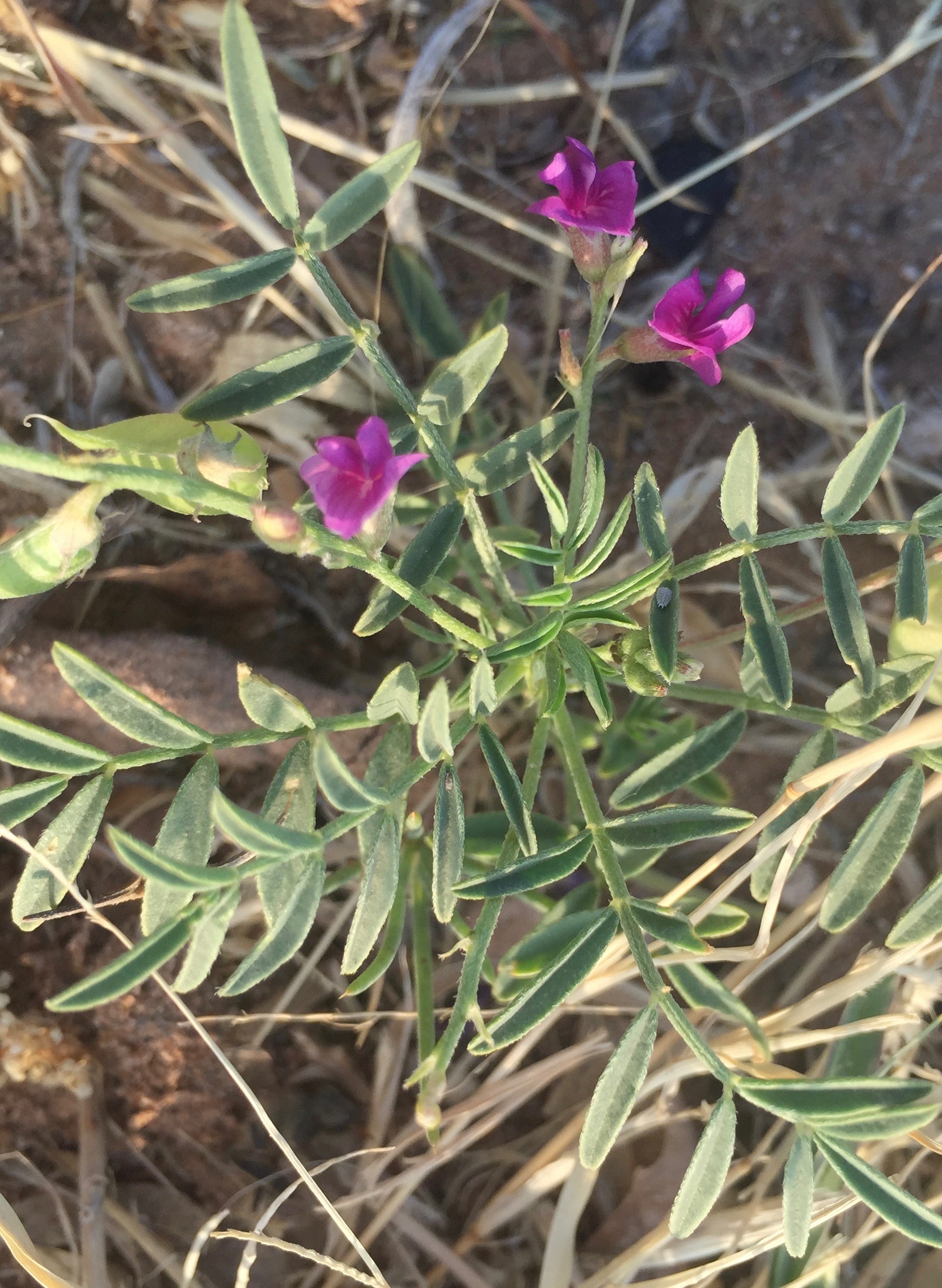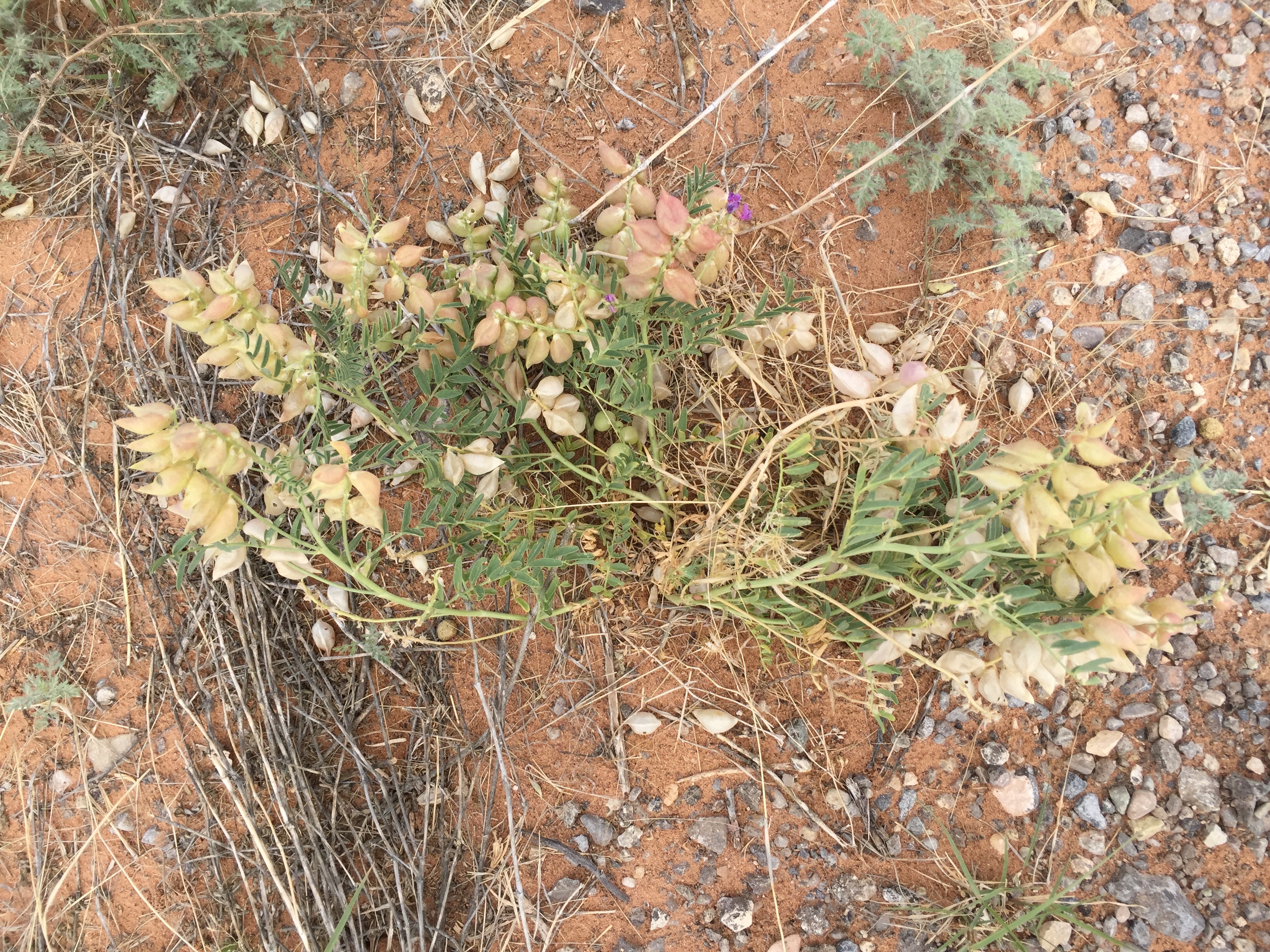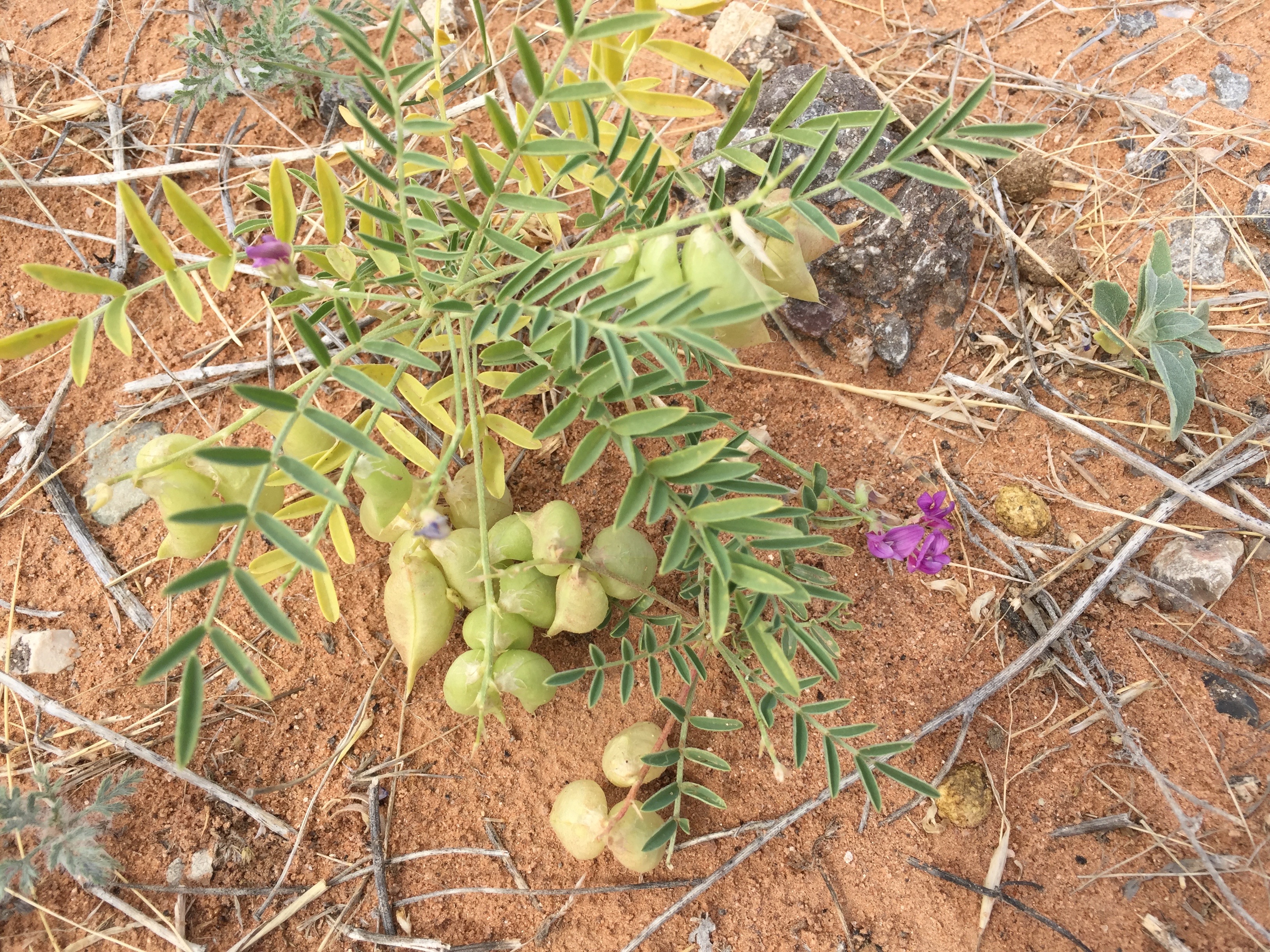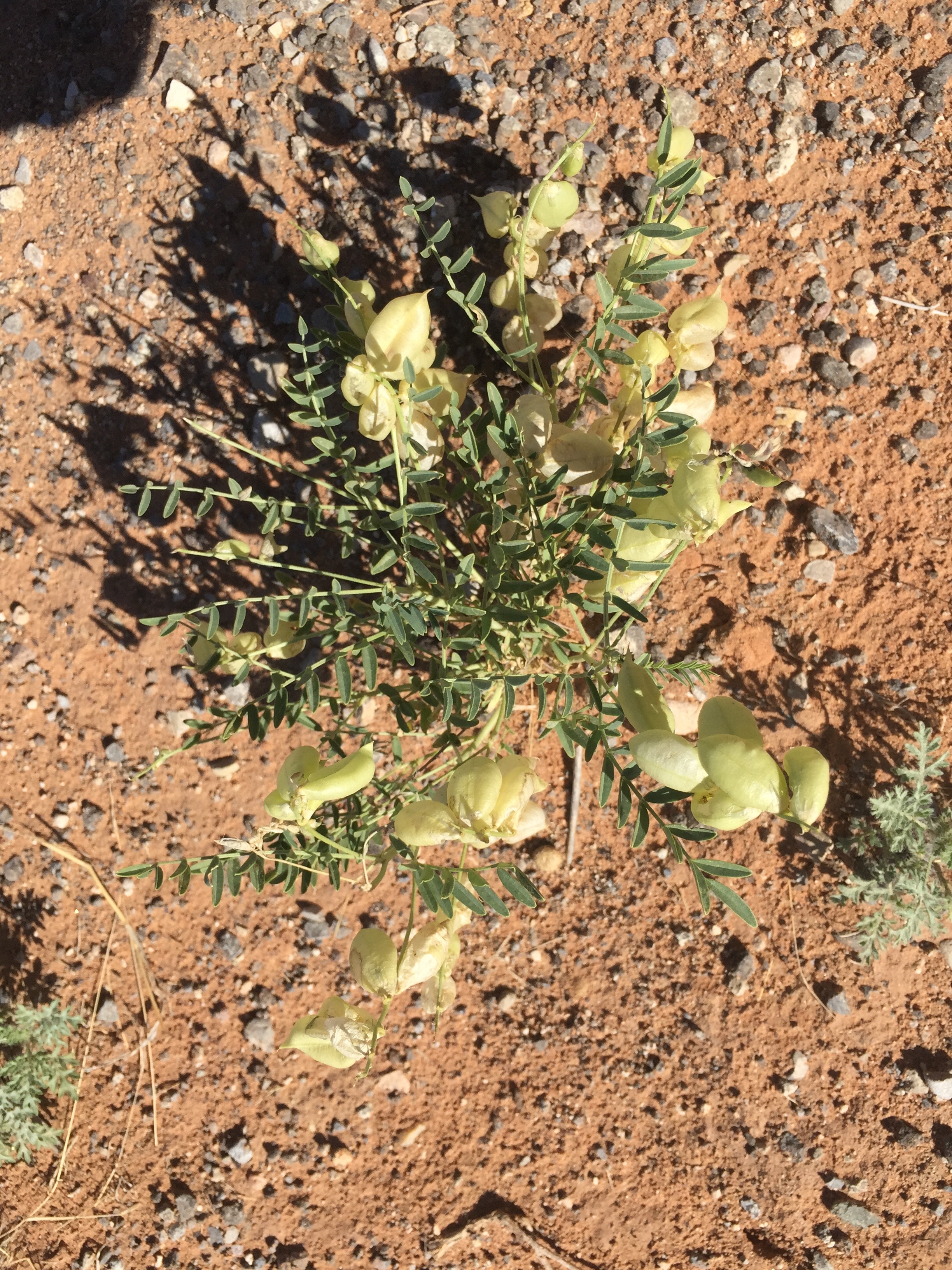Selected Plants of Navajo Rangelands
Take care of our Navajo Rangelands
Loco, rattleweed
(a.k.a. rattleweed, Half-moon milkvetch)

Rattleweed loco is native to Texas, New Mexico, and Arizona. This plant contains swainsonine, which is toxic to livestock.
To recognize it in the field, look for green leaves; small, bluish or purplish flowers; pods that are inflated and bladderlike; and sparse hairs near the base of the plant.
The plants are usually annual, sometimes persisting into a second season, with several stems 4 to 20 inches tall.
Locoweed species on the Navajo Nation may include:
- Astragalus amphioxys
- Astragalus beathii (Group 4, Navajo Endangered Species List)
- Astragalus ceramicus E. Sheldon var ceramicus
- Astragalus cronquistii (Group 3, Navajo Endangered Species List)
- Astragalus cutleri (Group 2, Navajo Endangered Species List)
- Astragalus heilii (Group 4, Navajo Endangered Species List)
- Astragalus humillimus (Group 2, Navajo Endangered Species List)
- Astragalus humistratus
- Oxytropis lambertii
- Astragalus lentiginosus Douglas ex Hooker var australis Barnely
- Astragalus lonchocarpus
- Astragalus missouriensis
- Astragalus mollisium
- Astragalus naturitensis (Group 3, Navajo Endangered Species List)
- Astragalus nuttallianus
- Astragalus praelongus Sheldon var ellisiae



©2018 NMSU Board of Regents.
Individual photographers retain all rights to their images.
Partially funded by the
Western Sustainable
Agriculture Research and Education Program
(westernsare.org; 435.797.2257),
project EW15-023.
Programs and projects supported by Western SARE are
equally open to all people.